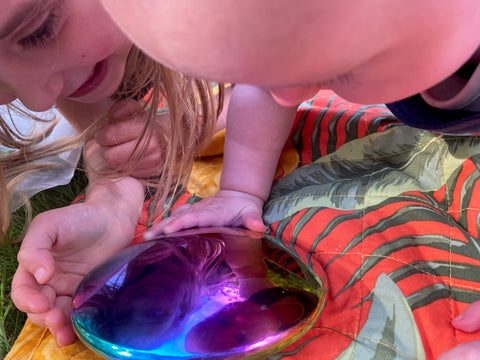Transition time! How to prepare your children for the next step on their journey through education.
Jan 10, 2022
Much has been said about the impact of the global pandemic and how the numerous lockdowns have affected our little ones and their development. However, despite the effort parents and teachers have made, the government has still cast aspersions on how our children have been, and will continue to be, impacted by the pandemic. As a parent whose children were unable to attend school during the lockdowns, and as a member of staff in a primary school for the last 6 years, I can honestly say that the pandemic has had little obvious detriment to those children who would otherwise be developing typically for their age. Yes, there has been an impact on the social skills of those 3-, 4- and 5-year-olds who would, or should, have been honing their social and communication skills in a language and play rich environment. However, we should remind ourselves that ALL 3-, 4- and 5-year-olds have been in the same boring and people-less boat. They have all “missed out” on these opportunities and therefore will all adapt their play accordingly, together. We can take comfort from that, at least.
 Interestingly, we send our children to school much earlier than our European neighbours. In Sweden, education is not mandatory until the age of 7. I am sure much research has been carried out on the benefits of starting school earlier, or later, but in the grand scheme of things, by the time our children reach secondary, or further education age, does their school attendance at 4, 5 or 6-years-old have much of an impact? I remember a girl in my primary school who had Glandular Fever, she didn’t come to school for at least 6 months, but everyone else in the class did. Fast forward 30 years and that “poor girl” with Glandular Fever, who missed out on many months of school, is no less successful and happy because of it.
Interestingly, we send our children to school much earlier than our European neighbours. In Sweden, education is not mandatory until the age of 7. I am sure much research has been carried out on the benefits of starting school earlier, or later, but in the grand scheme of things, by the time our children reach secondary, or further education age, does their school attendance at 4, 5 or 6-years-old have much of an impact? I remember a girl in my primary school who had Glandular Fever, she didn’t come to school for at least 6 months, but everyone else in the class did. Fast forward 30 years and that “poor girl” with Glandular Fever, who missed out on many months of school, is no less successful and happy because of it.
 For years people working with children have said that children are “resilient”, and I really believe they are. Children have an ability to develop coping mechanisms when they find something challenging. So, for this generation of children, who we are being told have been robbed of some of their education, I believe they will be fine, more than fine actually. I believe they may have had a greater opportunity to mature in the safety and calmness of their own homes before attending school. In school a sense of maturity is demanded of them to be able to fit in to a class with 29 other children.
For years people working with children have said that children are “resilient”, and I really believe they are. Children have an ability to develop coping mechanisms when they find something challenging. So, for this generation of children, who we are being told have been robbed of some of their education, I believe they will be fine, more than fine actually. I believe they may have had a greater opportunity to mature in the safety and calmness of their own homes before attending school. In school a sense of maturity is demanded of them to be able to fit in to a class with 29 other children.
If there were an area that I would encourage children to develop and practice at home, prior to starting school or transitioning to Key Stage 1, it would be to explore all areas of play. Just play. Play with friends or family, but also play independently. Let them find what they enjoy, what opens their imagination and supports them to show their individualism and creativity.
To parents, carers, and educators, it is our role to provide play opportunities for our children. A rich play opportunity is not planned out or prescriptive, it does not require rules and regulation, and there is no right or wrong way to play. Our purpose is simply to facilitate our children with a safe environment to explore and play in. That way, when they are in school, they will at least have the skill to play alongside their peers, until they are ready for the next stage of their development, which is to engage socially.

Written by Rachel Comfort, mother and SEN practitioner in Early Years and Key Stage 1.



